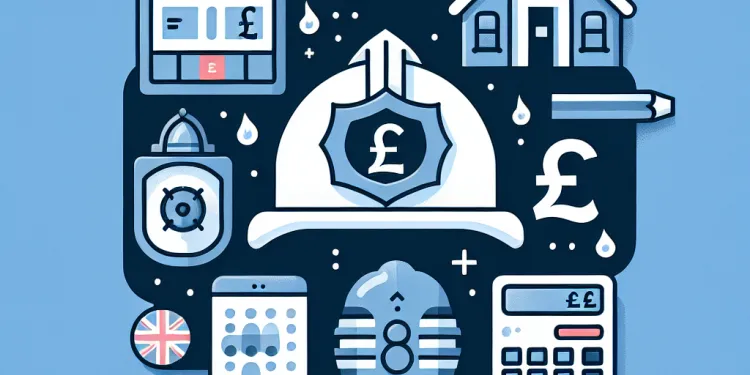
Find Help
More Items From Ergsy search
-

How is the pension calculated for firefighter schemes?
Relevance: 100%
-

Do firefighters have to contribute to their pension schemes?
Relevance: 81%
-

Do all UK firefighters automatically join a pension scheme?
Relevance: 80%
-

Does the 2015 scheme have the same benefits as the earlier firefighter pension schemes?
Relevance: 78%
-

Pension rights for Firefighters in the UK
Relevance: 77%
-

What is the normal pension age for firefighters in the UK?
Relevance: 67%
-

Is it possible to buy additional pension benefits as a firefighter?
Relevance: 66%
-

Are the pension rights different for firefighters who joined before 2006?
Relevance: 66%
-

Are firefighter pension benefits adjusted for inflation?
Relevance: 63%
-

Can firefighter pension benefits be divided in a divorce?
Relevance: 62%
-

Are firefighter pension benefits taxable?
Relevance: 60%
-

What happens to the pension benefits upon the death of a firefighter?
Relevance: 60%
-

Is there a pension scheme for retained (part-time) firefighters in the UK?
Relevance: 60%
-

What is the minimum service period to qualify for firefighter pension benefits?
Relevance: 58%
-

Can retired firefighters access their pension early on the grounds of ill-health?
Relevance: 56%
-

What options are available for flexibly accessing firefighter pension benefits?
Relevance: 55%
-

Can I nominate a beneficiary for my firefighter pension benefits?
Relevance: 52%
-

What provisions are there for firefighters who retire early by choice?
Relevance: 52%
-

What is a defined benefit pension scheme?
Relevance: 51%
-
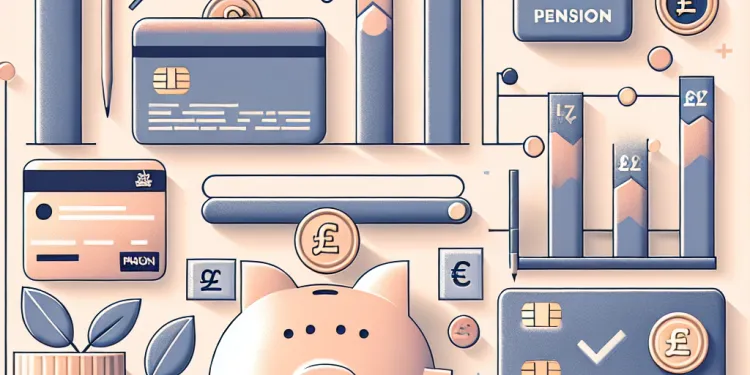
What is a defined contribution pension scheme?
Relevance: 47%
-

How do online pension calculators help?
Relevance: 45%
-

Can pension scheme members influence how their pension is managed?
Relevance: 45%
-

How does leaving the fire service before pension age affect my benefits?
Relevance: 43%
-

NHS Pensions | All you need to know
Relevance: 40%
-

Police Pension Explained
Relevance: 38%
-
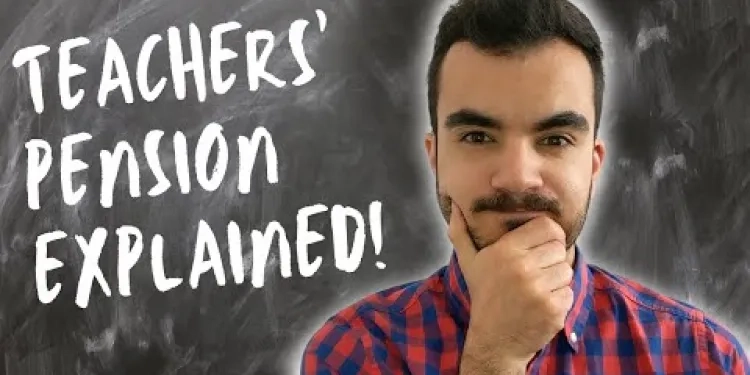
Teachers Pension Explained | All you need to know | Final Salary & Career Average Earnings
Relevance: 38%
-
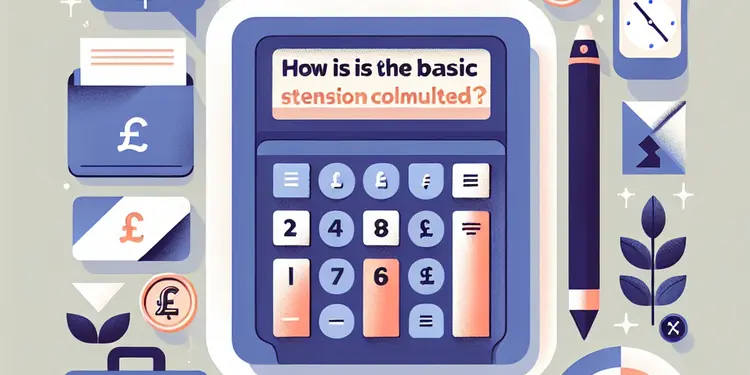
How is the basic State Pension calculated?
Relevance: 37%
-
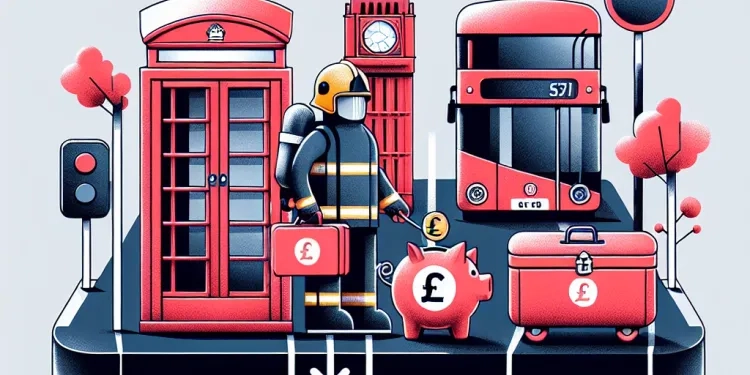
Can firefighters transfer other pension benefits into their firefighter pension scheme?
Relevance: 37%
-

5 Ways You Can Contribute More To Your NHS Pension!
Relevance: 34%
-
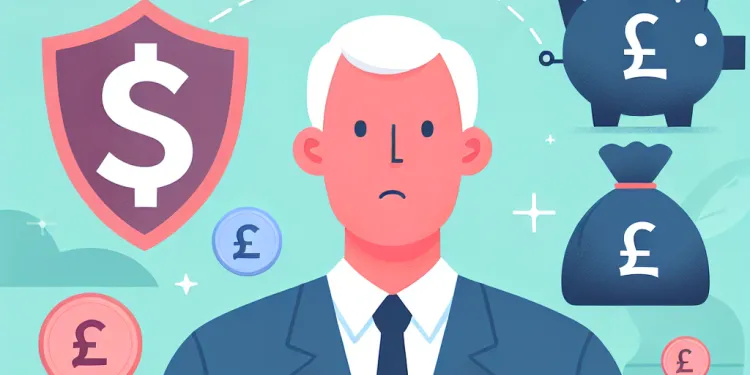
What is the Pension Protection Fund?
Relevance: 33%
-

Answering NHS Pension Questions | Opting-Out | How to Claim | Moving Abroad etc.
Relevance: 33%
-

What Happens When Pensions Go Bust! | Pension System Collapse UK
Relevance: 33%
-
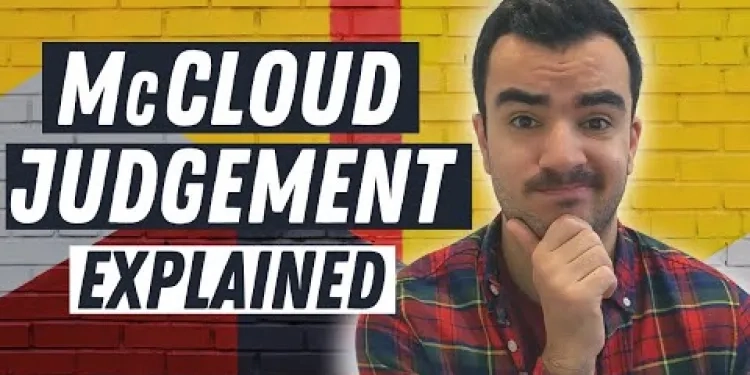
Public Sector Pension Changes | McCloud Judgement | NHS Pensions etc.
Relevance: 33%
-
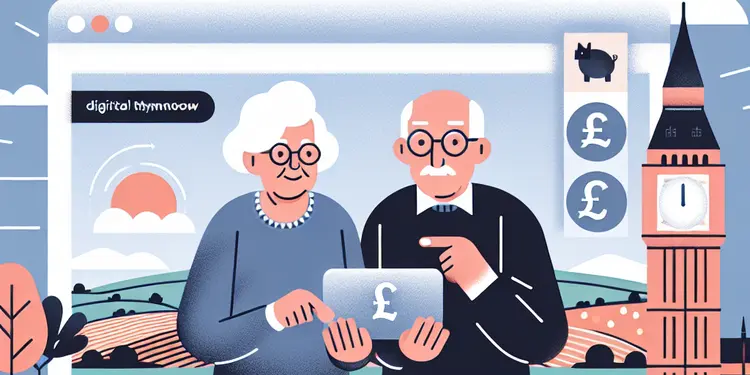
Are there free online resources for pension advice?
Relevance: 32%
-
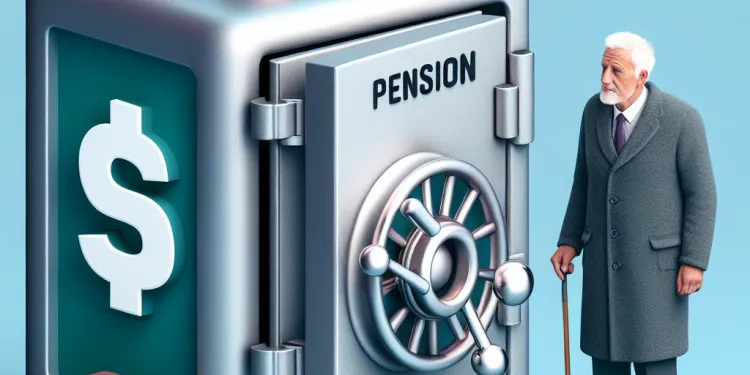
Can pensioners lose all their money if a pension provider fails?
Relevance: 32%
-

NHS Pension - Total Rewards Statement Explained
Relevance: 32%
-

NHS Pensions | How to Claim? | Ill Health, Active & Deferred Members
Relevance: 32%
-

Is there a difference between the basic State Pension and the new State Pension?
Relevance: 31%
-

What is the NHS Low Income Scheme?
Relevance: 31%
-
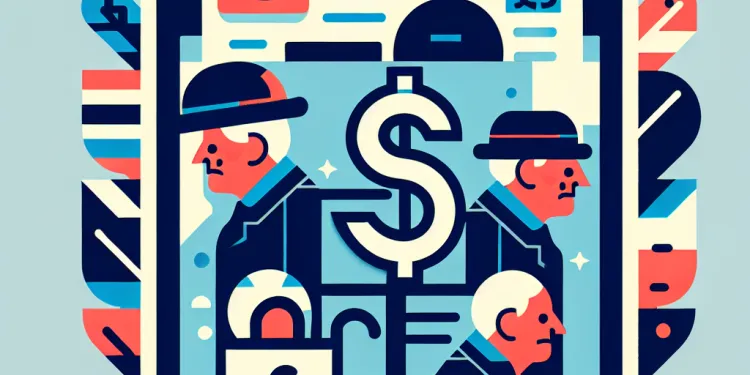
How can I find out my specific state pension age?
Relevance: 31%
Introduction to Firefighter Pension Schemes
In the UK, firefighter pension schemes are designed to provide financial security after retirement. The amount of pension a firefighter receives depends on several factors, including the specific scheme they are enrolled in, years of service, and salary history. The two primary schemes for firefighters are the Firefighters' Pension Scheme 1992 (FPS 1992) and the Firefighters' Pension Scheme 2015 (FPS 2015). Each scheme has different rules and calculation methods.
Firefighters' Pension Scheme 1992 (FPS 1992)
The FPS 1992 is a defined benefit scheme based on a firefighter's final salary and length of service. To calculate the pension under this scheme, the firefighter's pensionable service is a crucial factor. The firefighter earns a pension based on their service years, with the standard accrual rate being 1/60th of their final salary per year of service for the first 20 years, and 2/60ths for any additional years up to a maximum pension of 40/60ths. Therefore, a firefighter with 30 years of service could receive a pension equivalent to their final salary.
To illustrate: if a firefighter's final pensionable salary is £30,000 and they have 30 years of service, they could receive a basic pension of 40/60ths of this salary, which equates to £20,000 annually.
Firefighters' Pension Scheme 2015 (FPS 2015)
The FPS 2015 is a career average revalued earnings (CARE) scheme. This means the pension is based on a firefighter's average earnings throughout their career rather than their final salary. Each year, 1/59.7th of the firefighter's pensionable earnings is added to their pension pot. Additionally, this amount is revalued each year in line with inflation. Upon retirement, the total pension pot calculation results in the annual pension amount.
For example, if a firefighter earns £30,000 in one particular year, under the typical accrual rate, they would add approximately £502 to their pension for that year (1/59.7 x £30,000). If their salary and the accrual remain constant over their career, and considering revaluation, the cumulative pension upon retirement will be the sum of each year’s accrual.
Other Factors and Considerations
In both schemes, factors such as early or late retirement, purchasing additional pension, and transferring benefits from other schemes can alter the final pension amount. Additionally, benefits and potential lump sum payments can affect the total retirement package. It's crucial for firefighters to engage with pension advisers to comprehend their personal circumstances and maximize their pension benefits.
Conclusion
The calculation of a firefighter's pension varies significantly between the FPS 1992 and FPS 2015 schemes, mainly due to their differing methodologies. Understanding these schemes and how they apply to individual situations is crucial for firefighters to plan effectively for retirement. Firefighters are encouraged to consult the dedicated Firefighters' Pension Scheme administrators for specific guidance tailored to their career and retirement goals.
Introduction to Firefighter Pension Plans
In the UK, pension plans help firefighters have money when they stop working. How much money they get depends on a few things like which plan they are in, how long they have worked, and their salary. There are two main plans for firefighters: the Firefighters' Pension Plan 1992 (FPS 1992) and the Firefighters' Pension Plan 2015 (FPS 2015). Each plan has different rules.
Firefighters' Pension Plan 1992 (FPS 1992)
The FPS 1992 plan gives a pension based on how long a firefighter has worked and their last salary. To figure out the pension, they use the years worked. For the first 20 years, the pension grows by 1/60th of the final salary per year. After that, it grows by 2/60ths each year until it reaches a max of 40/60ths. So, a firefighter with 30 years of work could get a pension that matches their final yearly salary.
Example: If a firefighter's last yearly salary is £30,000 and they worked for 30 years, they could get a basic pension of £20,000 each year (which is 40/60ths of £30,000).
Firefighters' Pension Plan 2015 (FPS 2015)
The FPS 2015 plan works differently. It uses the average salary a firefighter makes during their whole career, not just their last salary. Each year, 1/59.7th of their salary is added to their pension pot. This amount grows each year with inflation. When a firefighter retires, the total amount in the pot is what they get each year as a pension.
For instance, if a firefighter earns £30,000 in one year, they would add about £502 to their pension for that year (1/59.7 of £30,000). If the salary stays the same, each year's amount gets added up with inflation, building the pension in the pot.
Other Things to Consider
In both plans, retiring early or late and other choices can change the final pension amount. Firefighters can also buy extra pension benefits or move benefits from other plans. It's important for firefighters to talk to pension advisers to understand their options and get the most from their pension.
Conclusion
The way a firefighter's pension is figured out is different for FPS 1992 and FPS 2015 plans because they use different methods. Knowing how these plans work can help firefighters plan for retirement. Firefighters should talk to the Firefighters' Pension Plan administrators for help that fits their own careers and goals.
Frequently Asked Questions
What factors determine the pension for a firefighter?
The pension is typically determined by factors such as years of service, average salary over a specified period, and the specific rules of the firefighter pension scheme.
How does length of service affect a firefighter's pension?
The longer a firefighter serves, the higher their pension may be, as it often increases with each additional year of service.
What role does salary play in calculating firefighter pensions?
Pensions are often based on the average salary of the firefighter over a certain period, usually the final years of their career, which can significantly affect the pension amount.
Are there different types of firefighter pension schemes?
Yes, there are typically legacy and reformed schemes that firefighters may be part of, depending on their date of joining and other factors.
What is 'final salary' in the context of firefighter pensions?
Final salary refers to the salary used to calculate the pension benefits, often the average salary of the last few years of service or the highest salary earned.
How do legacy pension schemes differ from reformed schemes?
Legacy schemes are older, often more generous plans, while reformed schemes may have updated criteria and benefits, possibly less favorable.
Can firefighters buy additional years to increase their pension?
In some schemes, firefighters may purchase additional years of service, known as 'added years,' to boost their pension benefits.
Is a firefighter's pension affected by early retirement?
Yes, taking a pension early usually results in a reduced amount, as benefits may be decreased to reflect the longer payout period.
Are survivor benefits included in firefighter pension schemes?
Many firefighter pension schemes include survivor benefits, providing financial support to the firefighter’s dependents after their death.
How does inflation impact firefighter pensions?
Many pension schemes have provisions for inflation, adjusting benefits to maintain purchasing power over time.
What is the typical retirement age for firefighter pension benefits?
Retirement ages can vary depending on the specific scheme, but often range from the mid-50s to 60s.
Are firefighter pensions guaranteed?
While pensions are typically guaranteed by the employer or pension trustee, changes in law or policy can affect future benefits.
What happens if a firefighter changes employers?
Usually, a firefighter retains pension rights from previous employment, with provisions for transferring pensions between schemes depending on the rules.
Do firefighter pensions include healthcare benefits?
This depends on the specific pension plan, as some may offer healthcare benefits, while others do not.
How often are firefighter pensions reviewed or updated?
Pension schemes are periodically reviewed and may be updated to reflect economic conditions, policy changes, or other factors.
What is commutation in firefighter pensions?
Commutation allows a firefighter to exchange part of their pension for a lump sum payment, reducing regular pension benefits.
Can firefighter pensions be inherited?
Pensions are generally not inheritable; however, survivor benefits may be available for dependents or spouses.
Are there tax implications for firefighter pensions?
Pension benefits are often subject to taxation as income, and the specific tax treatment can depend on jurisdiction.
How is a firefighter's pension statement calculated?
A pension statement is typically generated based on current service years, salary, and applicable pension rules to provide an estimate of benefits.
Can firefighters access a portion of their pension before retirement?
Early access is usually restricted, but in some scenarios like severe illness, limited early withdrawal might be possible according to scheme rules.
What things decide how much money a firefighter gets when they retire?
Here is some easy information to help understand:
- Years Worked: The more years a firefighter works, the more money they might get.
- Job Level: Higher job levels can mean more pension money.
- Pay Amount: Higher pay while working usually means more pension money.
Try using tools like audiobooks or text-to-speech apps to make reading easier. You can also ask someone to explain things to you.
Your pension money is usually decided by a few things: how many years you've worked, what your average pay was for a certain time, and the rules of the firefighter pension plan.
If you find it hard to think about these things, maybe try using pictures or diagrams. You could use a calculator to help with the numbers. A friend or family member could also help you understand.
How does time working as a firefighter change their pension?
Firefighters get a pension when they stop working. A pension is money they receive after retiring. The number of years they work affects how much pension money they get.
The longer a firefighter works, the more pension money they can receive each month. For example, if they work for many years, they might get more money when they retire.
If it's hard to understand text, some tools can help. You can use text-to-speech apps to have it read aloud. Drawing or using pictures to show ideas can also help make it clear.
The longer a firefighter works, the more money they might get when they stop working. This is because each extra year of working can add more money to their pension.
How does pay affect firefighter pensions?
Firefighters get money when they stop working, called a pension. This money is usually based on how much they earned, especially in the last years they worked. This can change how much money they get in their pension.
Are there different kinds of firefighter pension plans?
Firefighters can be in different types of plans. These plans are like rules about how they get paid when they stop working. The plans may have different names and depend on when the firefighter started the job and other things.
What does 'final salary' mean for firefighter pensions?
'Final salary' means the pay you get right before you stop working. This pay helps decide what your pension will be. Sometimes, it means the average pay from your last few years. Other times, it means the highest pay you got.
What is the difference between old and new pension plans?
Legacy schemes are old plans. They often give more money or help. Reformed schemes are new plans. They may have new rules and give less money or help.
Can firefighters get extra years to make their pension bigger?
Firefighters may want to make their pension bigger. A pension is money they get when they stop working.
Here is what they can do:
- Firefighters can buy extra years. This means they pay more money now to get more money later.
- If they have questions, they can talk to someone who knows pensions well.
- These people can help with what to do. Tools like a pension calculator can help too.
Getting help and using tools can make things easier to understand.
Firefighters can sometimes buy extra years of service called 'added years.' This can help make their pension better for when they retire.
Does a firefighter get less money if they stop working early?
If you take your pension money early, you will often get less money. This is because they give you money for a longer time.
Do firefighter pensions give money to families if the firefighter dies?
When a firefighter dies, their family can get some money to help them. This is called survivor benefits. It is like a special part of the firefighter’s pension plan. It helps take care of their family after they are gone.
How does inflation affect firefighter pensions?
Inflation means that prices for things go up over time. When things cost more, the money we earn and save buys less.
A firefighter pension is money given to firefighters after they stop working. Inflation can change how much this money can buy.
If prices go up, but a pension stays the same, firefighters might struggle to buy what they need.
It is important to make sure pensions grow so they can still buy the same things as before.
Using a calculator or speaking to a money helper can be useful to understand this.
Many pension plans change the money you get to keep up with price increases. This helps make sure you can still buy what you need.
How old is a firefighter when they usually stop working and get their pension?
When people stop working can be different. It often happens between ages 55 to 65.
Do firefighters always get their pensions?
Your pension is usually promised by your boss or the person who looks after your pension. But sometimes, the law or rules can change, and this might change how much money you get in the future.
What happens if a firefighter gets a new job?
If a firefighter starts working for a different boss, some things might change. Here’s what they should do:
- Check pay and benefits: Make sure you know how much money you will make and if there are any new perks or benefits.
- Learn new rules: Ask about the new rules at your new fire station. Every place can be a little different.
- Meet new people: It’s nice to meet your new team. Working well together is important.
- Training: You might need to learn new things or get more training. This helps you do your job well.
For extra help, you can:
- Ask questions if you do not understand something.
- Use pictures or videos to help you learn new things.
- Talk to someone like a friend or family member if you need support.
If a firefighter has worked somewhere else before, they usually keep their pension from that job. There are ways to move the pension to a new plan, but it depends on the rules.
Do firefighters get healthcare with their pensions?
This depends on the type of pension plan. Some plans give you healthcare benefits; others do not.
How often do firefighter pensions change?
Firefighter pensions are checked and updated sometimes. This means the rules about money firefighters get when they stop working can change.
Firefighter pensions usually change when:
- The law changes
- Prices of things go up
- The government makes new rules
For help understanding, you can ask someone to explain. You can also use tools like a dictionary or read together with a friend.
We look at pension plans from time to time and might change them if the economy changes, new rules come in, or other things happen.
What does commutation mean in firefighter pensions?
Commutation is when a firefighter decides to take some of their pension money in a big payment now, instead of getting it in little bits every month.
Here is a helpful way to understand it:
- Imagine the firefighter's pension is like a jar of sweets.
- They can choose to eat a few sweets every day (this is the monthly pension).
- Or, they can take a lot of sweets at once (this is the commutation).
Tools like money advice websites can help firefighters decide what to do.
It's good for them to talk to someone who understands pensions, like a financial advisor.
Commutation lets a firefighter trade some of their pension for a big one-time payment. This makes their regular pension payments smaller.
Can a family get a firefighter's pension when they pass away?
When a firefighter dies, their family might get some money. This money is called a pension.
Here’s how you can find out:
- Ask someone who knows about firefighter pensions. This could be a person who works in an office for firefighters.
- Look online at the website where firefighter pensions are explained. Lots of websites have easy guides that can help.
If you find it hard to read, you can:
- Ask a friend or family member to help you read.
- Use tools that read words out loud.
Pensions usually cannot be given to family when a person dies. But, sometimes family members like a spouse or children can get survivor benefits.
Do firefighters have to pay taxes on their pensions?
Pensions are money you get when you stop working. Sometimes, you must pay tax on this money like you do with regular pay. The rules for this can change depending on where you live.
How do firefighters know how much money they will get when they retire?
When firefighters stop working, they get money called a pension. The amount they get is worked out using some steps. It is like math, but we can make it easy!
Here are some simple ways to think about it:
- Years Worked: How long did they work as a firefighter?
- Salary: How much did they get paid each year?
- Rules: There are special rules for firefighters about how to count this money.
Firefighters can use tools like calculators to help figure things out. Somebody, like a financial advisor, can also help explain the numbers.
Remember, this is important for making sure firefighters have enough money when they stop working.
A pension statement is a paper that shows money you might get when you stop working. It uses your years of work, how much money you make, and special rules to guess this amount.
You can use tools like picture cards or ask someone to explain tricky words. Reading with a buddy can also help.
Can firefighters get some money from their pension before they stop working?
Sometimes, getting money early is not allowed. But if you are very sick, you might be able to get some money early. This depends on the rules of the plan.
Useful Links
This website offers general information and is not a substitute for professional advice.
Always seek guidance from qualified professionals.
If you have any medical concerns or need urgent help, contact a healthcare professional or emergency services immediately.
Some of this content was generated with AI assistance. We’ve done our best to keep it accurate, helpful, and human-friendly.
- Ergsy carfully checks the information in the videos we provide here.
- Videos shown by Youtube after a video has completed, have NOT been reviewed by ERGSY.
- To view, click the arrow in centre of video.
- Most of the videos you find here will have subtitles and/or closed captions available.
- You may need to turn these on, and choose your preferred language.
- Go to the video you'd like to watch.
- If closed captions (CC) are available, settings will be visible on the bottom right of the video player.
- To turn on Captions, click settings .
- To turn off Captions, click settings again.
More Items From Ergsy search
-

How is the pension calculated for firefighter schemes?
Relevance: 100%
-

Do firefighters have to contribute to their pension schemes?
Relevance: 81%
-

Do all UK firefighters automatically join a pension scheme?
Relevance: 80%
-

Does the 2015 scheme have the same benefits as the earlier firefighter pension schemes?
Relevance: 78%
-

Pension rights for Firefighters in the UK
Relevance: 77%
-

What is the normal pension age for firefighters in the UK?
Relevance: 67%
-

Is it possible to buy additional pension benefits as a firefighter?
Relevance: 66%
-

Are the pension rights different for firefighters who joined before 2006?
Relevance: 66%
-

Are firefighter pension benefits adjusted for inflation?
Relevance: 63%
-

Can firefighter pension benefits be divided in a divorce?
Relevance: 62%
-

Are firefighter pension benefits taxable?
Relevance: 60%
-

What happens to the pension benefits upon the death of a firefighter?
Relevance: 60%
-

Is there a pension scheme for retained (part-time) firefighters in the UK?
Relevance: 60%
-

What is the minimum service period to qualify for firefighter pension benefits?
Relevance: 58%
-

Can retired firefighters access their pension early on the grounds of ill-health?
Relevance: 56%
-

What options are available for flexibly accessing firefighter pension benefits?
Relevance: 55%
-

Can I nominate a beneficiary for my firefighter pension benefits?
Relevance: 52%
-

What provisions are there for firefighters who retire early by choice?
Relevance: 52%
-

What is a defined benefit pension scheme?
Relevance: 51%
-

What is a defined contribution pension scheme?
Relevance: 47%
-

How do online pension calculators help?
Relevance: 45%
-

Can pension scheme members influence how their pension is managed?
Relevance: 45%
-

How does leaving the fire service before pension age affect my benefits?
Relevance: 43%
-

NHS Pensions | All you need to know
Relevance: 40%
-

Police Pension Explained
Relevance: 38%
-

Teachers Pension Explained | All you need to know | Final Salary & Career Average Earnings
Relevance: 38%
-

How is the basic State Pension calculated?
Relevance: 37%
-

Can firefighters transfer other pension benefits into their firefighter pension scheme?
Relevance: 37%
-

5 Ways You Can Contribute More To Your NHS Pension!
Relevance: 34%
-

What is the Pension Protection Fund?
Relevance: 33%
-

Answering NHS Pension Questions | Opting-Out | How to Claim | Moving Abroad etc.
Relevance: 33%
-

What Happens When Pensions Go Bust! | Pension System Collapse UK
Relevance: 33%
-

Public Sector Pension Changes | McCloud Judgement | NHS Pensions etc.
Relevance: 33%
-

Are there free online resources for pension advice?
Relevance: 32%
-

Can pensioners lose all their money if a pension provider fails?
Relevance: 32%
-

NHS Pension - Total Rewards Statement Explained
Relevance: 32%
-

NHS Pensions | How to Claim? | Ill Health, Active & Deferred Members
Relevance: 32%
-

Is there a difference between the basic State Pension and the new State Pension?
Relevance: 31%
-

What is the NHS Low Income Scheme?
Relevance: 31%
-

How can I find out my specific state pension age?
Relevance: 31%


